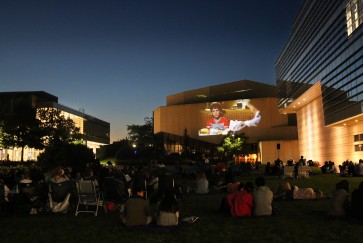Chiefs of police, sheriffs and mayors from all over the U.S. will gather in St. Louis, not far from Ferguson, Missouri, Nov. 1 and 2 for a Northwestern University Center for Public Safety (NUCPS) workshop aimed at improving relationships between law enforcement and average citizens.
The two-day workshop, “Preventing Community Crisis: Implicit Bias, Procedural Justice and Police-Community Partnerships,” will address the ways implicit bias and subconscious stereotypes play out in interactions between police and citizens.
We have an opportunity to change the culture of policing and promote a model of police as agents of social change.”
Executive Director, NUCPS
As strained police/community relations continue to dominate headlines, attendees will learn strategies to recognize biases and minimize their effects through use of a diagnostic tool, developed by NUCPS, that can be customized, depending on the community in question.
“We have an opportunity to change the culture of policing and promote a model of police as agents of social change,” NUCPS Executive Director David Bradford said.
Workshop panelists will include Yost Zakhary, former president of the International Association of Chiefs of Police, and T.R. Carr Jr., a member of the Ferguson Commission. Missouri Gov. Jay Nixon created the commission in 2014, following the Ferguson riots.
See descriptions of all panelists and speakers here.
Drawing from more than 80 years of experience in shaping public safety policy, NUCPS developed the workshop with input from researchers, experienced law enforcement officials and mental health experts.
“There has always been a gap between academics and practitioners,” Bradford said. “Bridging that gap is what we do.”
It took two years to develop the diagnostic tool to help law enforcement recognize and minimize implicit bias. Workshop attendees, through a series of lectures and experiential activities, will learn how to customize the tool to address the specific biases at work in the communities they serve.
Bradford says participants will come away with a working knowledge of implicit bias and its role in everyday decisions and policy development; an understanding of procedural justice and its importance in upholding the U.S. Constitution; and a framework tool and understanding of how to utilize it to accomplish the first two goals
“Our mission, in the long term, is to shift the paradigm of policing, improving lives through a more holistic view of public safety,” Bradford said.
NUCPS has hosted similar workshops in the Chicago area. To bring the workshop to your city, or for more information, email masha.alexander@northwestern.edu.

